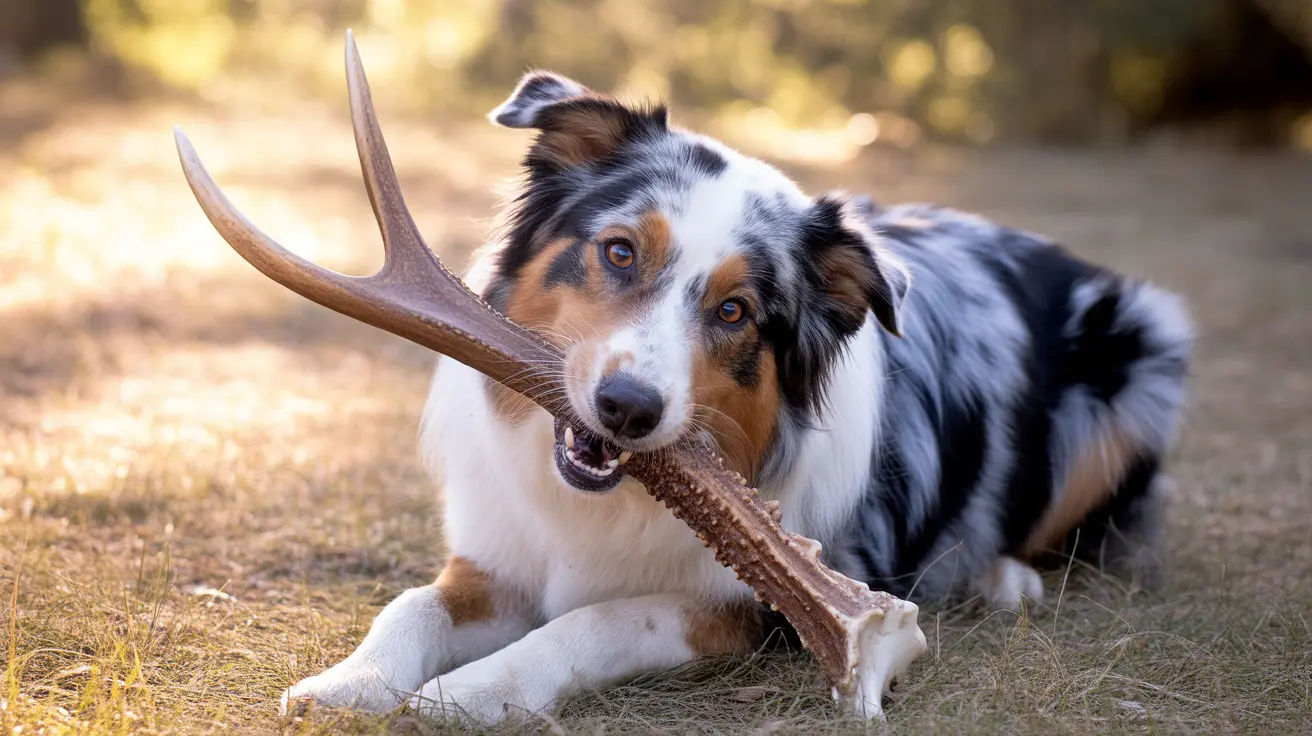Many dog owners wonder about the safety and benefits of giving their pets deer antlers to chew on. While these natural chews have gained popularity for their durability and potential dental benefits, it's crucial to understand both the advantages and risks before offering them to your furry friend.
In this comprehensive guide, we'll explore everything you need to know about deer antlers as dog chews, including safety considerations, proper selection, and expert recommendations to help you make an informed decision for your pet.
Understanding Deer Antlers as Dog Chews
Deer antlers are naturally shed by wild deer annually and have become a popular choice for dog chews due to their long-lasting nature and mineral content. These dense, hard chews contain calcium, phosphorus, and other minerals that can potentially benefit your dog's health. However, their extreme hardness is both their greatest asset and biggest drawback.
Benefits of Antler Chews for Dogs
When used appropriately, deer antlers can offer several advantages for dogs:
- Natural dental cleaning through mechanical chewing action
- Long-lasting durability, especially for aggressive chewers
- No artificial preservatives or additives
- Potential source of minerals
- Helps satisfy natural chewing instincts
Safety Concerns and Risks
Despite their benefits, deer antlers pose significant risks that every dog owner should consider:
Dental Risks
The extreme hardness of antlers can lead to serious dental problems, including:
- Cracked or broken teeth
- Dental fractures requiring expensive surgery
- Worn enamel
- Tooth root damage
Choking and Obstruction Hazards
As dogs chew on antlers, they can:
- Break off sharp pieces that may cause internal injuries
- Create splinters that can get lodged in the throat
- Generate chunks large enough to cause choking or blockages
Choosing the Right Antler
If you decide to give your dog an antler, proper selection is crucial:
- Size: Choose an antler significantly larger than your dog's mouth
- Type: Consider split antlers for easier access to softer inner material
- Quality: Purchase from reputable sources or properly clean found antlers
- Age appropriateness: Avoid giving antlers to puppies or senior dogs
Supervision and Safety Guidelines
To minimize risks when offering antlers to your dog:
- Always supervise chewing sessions
- Remove the antler if it becomes small enough to swallow
- Watch for aggressive chewing behavior
- Stop use if you notice any dental problems
- Replace antlers when they develop sharp edges or splinters
Alternative Chew Options
For dogs who shouldn't have antlers, consider these safer alternatives:
- Rubber chew toys designed for heavy chewers
- Dental chews specifically formulated for dogs
- Kong toys filled with treats
- Bully sticks or other digestible chews
Frequently Asked Questions
Are deer antlers safe for my dog to chew on?
While deer antlers can be safe for some dogs under supervision, they pose significant risks of dental fractures and internal injuries. Always consult with your veterinarian before introducing antlers as a chew option.
How can I prevent my dog from breaking teeth while chewing on antlers?
Choose appropriately sized antlers, supervise chewing sessions, and remove the antler if your dog chews too aggressively. Consider split antlers, which are slightly softer, and never allow chewing on old or dried-out antlers.
What are the risks of giving antlers to puppies or small dogs?
Puppies and small dogs are particularly vulnerable to dental damage and choking hazards from antlers. Their developing teeth and smaller airways make them more susceptible to injuries, so it's best to avoid antlers for these dogs.
How do I choose the right size of antlers for my dog?
Select an antler that's significantly larger than your dog's mouth to prevent choking. The antler should be long enough that your dog can't fit the entire piece in their mouth at once.
What are safer alternatives to antlers for my dog to chew on?
Safer alternatives include specially designed rubber chew toys, dental chews, Kong toys, and digestible treats like bully sticks. These options provide similar benefits with less risk of dental damage or internal injury.
Conclusion
While deer antlers can be appropriate chews for some dogs, the risks often outweigh the benefits. If you choose to offer antlers to your dog, do so with careful consideration of your pet's age, size, and chewing habits, and always under close supervision. When in doubt, consult with your veterinarian or choose safer alternatives designed specifically for dogs.






